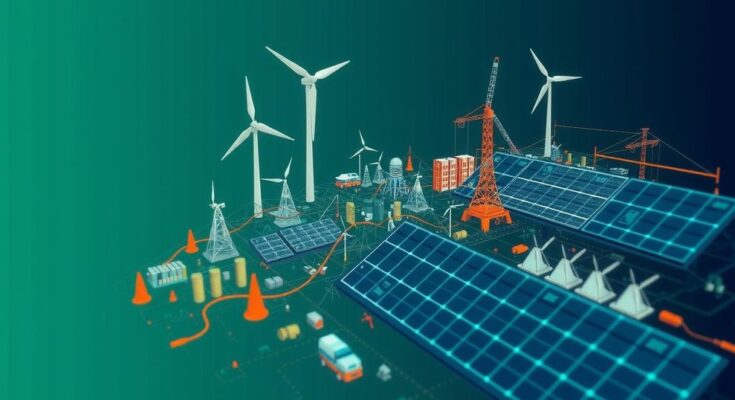Dr. Harriet Kung from the DOE spoke at VCU, detailing the intertwining of clean energy innovations and the challenges they face. Emphasizing economic stability, she warned of potential job disruptions in the fossil fuel sector. Kung identified promising technologies like hydrogen fuel and lithium-sulfur batteries, highlighting the role of AI in accelerating energy advancements while calling for collective action in America’s transition to sustainable energy.
Last week, Dr. Harriet Kung, the acting director of the Office of Science at the U.S. Department of Energy (DOE), spoke at Virginia Commonwealth University. Her address, under the auspices of VCU’s Institute for Sustainable Energy and Environment, illuminated the intricate relationship between clean energy innovations and the challenges intrinsic to their development globally. In her lecture titled “Science for Energy”, Kung emphasized crucial elements such as economic stability amid the transition to clean energy. She warned that as the clean energy sector grows, it could potentially disrupt jobs within the fossil fuels industry. “We cannot develop these energy technologies while at the expense of lessening our country’s economic or natural structure,” she stated, underscoring the need for a harmonious balance between technological advancement and economic preservation. Kung described groundbreaking technologies like hydrogen fuel, which promises quicker charging for vehicles compared to existing electric options, and the superiority of lithium-sulfur batteries over traditional batteries. Additionally, she highlighted the role of artificial intelligence in accelerating energy innovations, illustrating how AI could assist in discovering new energy creation methods through collaborations between the DOE and industry giants like Microsoft. The DOE, evolving since its roots in the Manhattan Project, now faces crucial decisions regarding energy sources in an ever-changing global landscape. Kung noted how while the U.S. and allies are transitioning toward clean energy, nations such as China and India still heavily rely on fossil fuels, creating a complex scenario for international energy policy. Kung called for collective action in the U.S., saying, “It’s everybody’s role to help us really secure the nation’s energy-sustainable future.” She stressed the importance of partner involvement from all sectors as the nation navigates its path to a sustainable energy future.
The talk at VCU comes amidst a broader discussion in the United States and worldwide regarding the transition from fossil fuels to renewable energy sources. This includes a focus on emerging technologies like hydrogen fuel and advanced battery systems that promise greater efficiency and cleaner energy. The DOE’s historical context is essential because it sheds light on how governmental priorities shift in response to global challenges, notably the reliance on cleaner energy solutions.
Dr. Harriet Kung’s address illustrates the encouraging yet complex journey toward a sustainable energy future. With innovations in clean energy, collaboration across disciplines and sectors is crucial. As the U.S. pushes for advancements, economic stability and job preservation within current industries must remain a priority. The collective effort will steer the nation toward a sustainable future, requiring everyone’s engagement and partnership.
Original Source: news.vcu.edu



